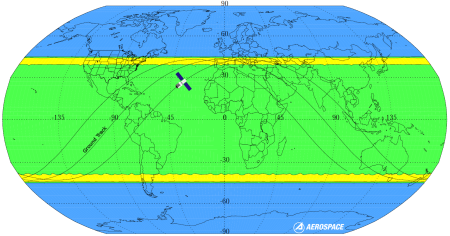Another smallsat rocket company enters the market
Capitalism in space: A new Australian smallsat rocket company, Gilmour Space Technologies, has successfully test fired a new hybrid rocket engine.
This orbital-class rocket engine, developed by Australia and Singapore-based Gilmour Space Technologies (www.gspacetech.com), has successfully achieved 70,000 newtons (70 kilonewtons or 15,700 pounds-force) of thrust in what could be the world’s largest successful test fire of a single-port hybrid rocket engine. “These results prove that we have the core technology needed to enable low-cost small satellite launches to space,” said its CEO & Founder, Adam Gilmour. The company’s mission: to carry payloads weighing up to 400 kg to low earth orbit (LEO) from 2020.
Unlike the vast majority of commercial rockets today, which use either solid- or liquid-fuelled engines, Gilmour Space is pioneering new hybrid-engine rockets that combine a liquid oxidiser with a proprietary multi-material 3D printed solid fuel. Indeed, the Queensland-based company first made headlines in 2016 when it successfully test launched a subscale rocket to an altitude of 5km using its 3D printed rocket fuel.
The static fire test, which can be seen in a video at the link, was very short, less than 10 seconds. Since one of the big problems of hybrid engines has been to get them to fire smoothly and precisely for long periods of time, I remain skeptical. They might have some good engineering here, but I don’t yet see the makings of a rocket.
Hat tip Doug Messier of Parabolic Arc.
Capitalism in space: A new Australian smallsat rocket company, Gilmour Space Technologies, has successfully test fired a new hybrid rocket engine.
This orbital-class rocket engine, developed by Australia and Singapore-based Gilmour Space Technologies (www.gspacetech.com), has successfully achieved 70,000 newtons (70 kilonewtons or 15,700 pounds-force) of thrust in what could be the world’s largest successful test fire of a single-port hybrid rocket engine. “These results prove that we have the core technology needed to enable low-cost small satellite launches to space,” said its CEO & Founder, Adam Gilmour. The company’s mission: to carry payloads weighing up to 400 kg to low earth orbit (LEO) from 2020.
Unlike the vast majority of commercial rockets today, which use either solid- or liquid-fuelled engines, Gilmour Space is pioneering new hybrid-engine rockets that combine a liquid oxidiser with a proprietary multi-material 3D printed solid fuel. Indeed, the Queensland-based company first made headlines in 2016 when it successfully test launched a subscale rocket to an altitude of 5km using its 3D printed rocket fuel.
The static fire test, which can be seen in a video at the link, was very short, less than 10 seconds. Since one of the big problems of hybrid engines has been to get them to fire smoothly and precisely for long periods of time, I remain skeptical. They might have some good engineering here, but I don’t yet see the makings of a rocket.
Hat tip Doug Messier of Parabolic Arc.





